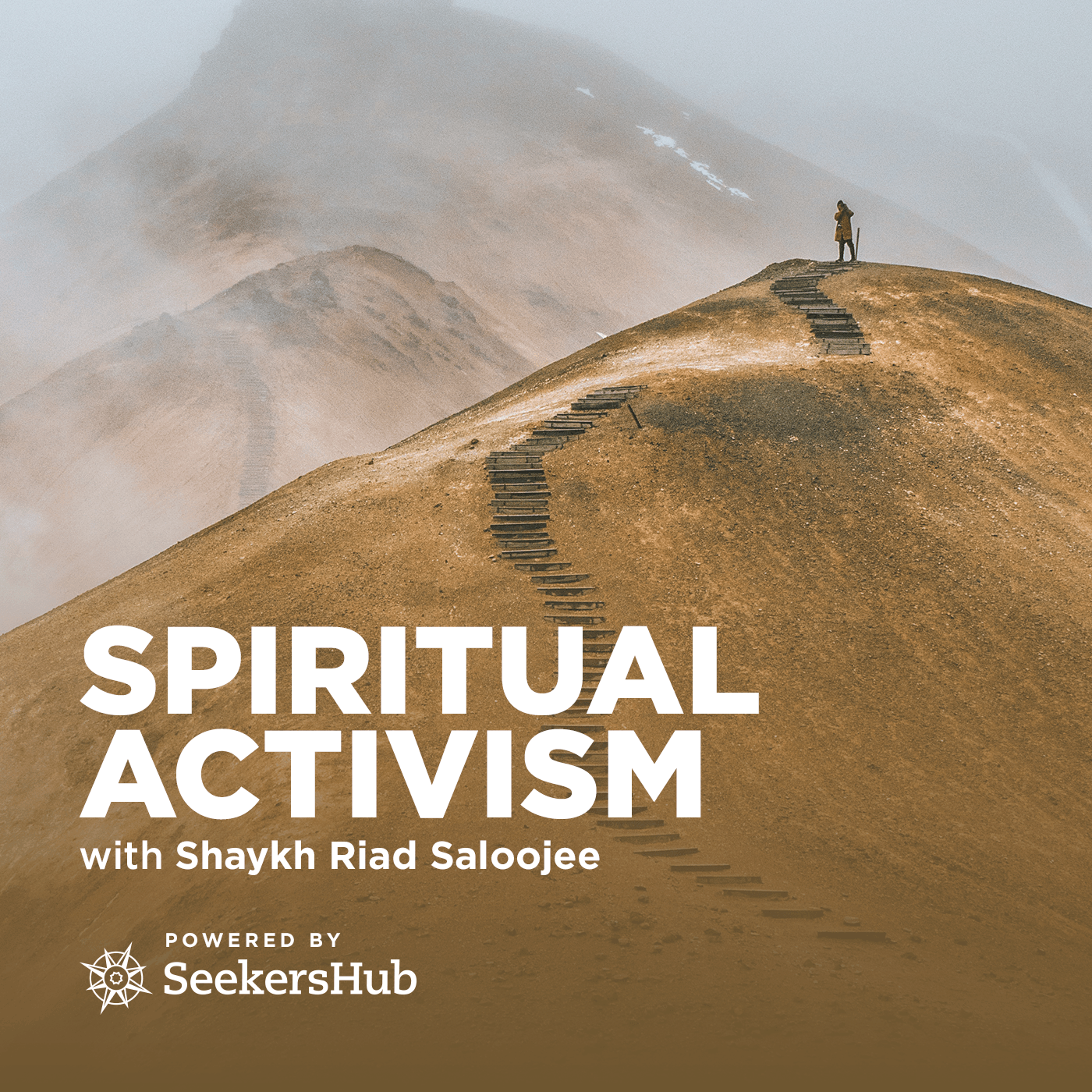06 – The Spirit Of Human Freedom
: Play in a new window | Download to your device (10.4MB)
TOPIC ONE – UNDERSTANDING ACTIVE SPIRITUALITY
The aim of every human being is happiness. We live our lives in pursuit of happiness. Happiness is relative; it is variegated and actualized differently from one person to another. And the truth of the matter, as we have seen, is that the relativity of our happiness depends on the reality of our lower-self (nafs).
While the heart (qalb) was created to know, experience and seek the Divine, the lower-self (nafs) can take one of four realities, each of which defines and experiences its own brand of happiness. The cattle-like lower-self finds satisfaction in material and hedonistic pursuits; the predatory-self through violent and aggressive hegemony over others; the Satanic-self through self-glorification and arrogance; and the angelic-self through knowledge and remembrance of the Divine.
Freedom is a means to pursue happiness. It is not an end in itself. The value of freedom lies in the extent to which it facilitates our pursuit for happiness. We value freedom for the choices it allows us, the actions we can then undertake, and the availability of means that allow us to maximize or optimize our experience of happiness.
Islamic spirituality is about freedom in the most profound, meaningful and true sense: the freedom and happiness of the heart (qalb). We have established that the heart (qalb) is an organ of cognition, whose ultimate purpose rests in knowing, experiencing and seeking the Divine. The heart (qalb) that connects with the Source of Peace (al-Salam), the Source of Security (al-Mu’min), the Enricher (al-Mughni), and the One who Bestows Without Measure (al-Wahhab) truly finds everything. In a moment of heart-felt connectedness with the Divine, a saintly soul uttered: What has he found the one who loses You; and what has he gained the one who finds You!
For the heart (qalb) to be free, it must be free from the suffocating grip of the carnal proclivities (shahwa) and the philosophical caprice (hawa) of the lower-self (nafs). Without freedom from the lower-self (nafs), the heart (qalb) will be blinded in its sight of the Divine, numbed in its emotional experience of the Divine and fettered in its seeking of the Divine.
Without being free from the lower-self (nafs), the heart (qalb) is confined to the experience of the happiness of a cow, wild-dog or Satan. Is a cow, wild-dog or Satan happy? Yes, it is – but happy only with the happiness of a cow, wild-dog or Satan; not the happiness of an angel, which is a happiness whose source is the timeless Infinite Beauty and Majestic of the Divine.
Without doubt, the balanced satisfaction of the drives of the lower-self (nafs) is necessary for the pursuit of happiness in the life of the world and Hereafter. We are both body and soul, spirit and matter. Islamic spirituality nurtures the needs of both. The lower-self will always have material needs and will require the freedom to pursue them. It will always need freedom of mobility, expression and association. However, these freedoms are neither absolutes nor ends in themselves. They are means to pursue the freedom of the heart (qalb).
The happiness of the lower-self (nafs), tied as it is to the necessities and exigencies of this word, can never exceed the quantum of four-dimensional being. As for the heart (qalb), it is an organ of supra-dimensional creation and subtlety. Its happiness knows no such perimeters. And for such to be attained, Islamic spirituality emphasizes freedom from the lower-self (nafs) – as opposed to the opposite: freedom of the lower-self in its excessive and destructive indulgences.
There is no inherent disconnect or contradiction between Islamic Spirituality and social or political activism. In fact, Islamic spirituality is not only relevant but essential to all forms of activism. This podcast with Shaykh Riad Saloojee will present a paradigm for a spiritually-inspired activism where activism achieves what it was always meant to be: a vehicle for nearness to the Divine through genuine individual and social ethical change.
This series will comprise of seven discussions that will explore 1. The foundations of Islamic spirituality; 2. The spiritual ethos that is the basis of all activism; 3. The ailments of activism unhinged from spirituality; 4. The laws that govern activism; 5. The importance of “inner,” spiritual activism for beneficial “outer” activism; 6. Vignettes from Prophetic activism; and 7. An application of how spirituality must inform true environmental activism.
For more podcasts by SeekersGuidance, visit SeekersGuidance.org/podcasts.

